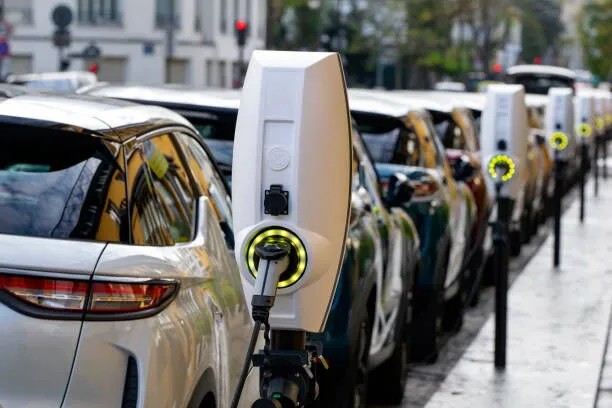Introduction
As a Leading EV Charger Manufacturer in China, LiCB Charge Delivers Reliable AC and DC Electric Vehicle Charging Stations Alongside Comprehensive Charging Solutions.
The global shift toward electric vehicles (EVs) is accelerating rapidly, fueled by government policies and growing consumer demand for greener transportation alternatives. This surge in EV adoption opens lucrative opportunities for entrepreneurs interested in the commercial EV charging station business. In this article, we’ll explore the essentials of commercial EV charging stations, guide you in selecting the right equipment, highlight the benefits of starting a dealership, and outline the key steps to establishing a successful EV charging business.
What Are Commercial EV Charging Stations?
Commercial EV charging stations are designed to serve public or semi-public areas, offering faster and more powerful charging compared to residential units. These stations support multiple vehicles simultaneously and are commonly installed in high-traffic locations such as shopping centers, parking garages, office complexes, and highway rest stops. As EV ownership expands, commercial charging infrastructure becomes critical to ensuring convenient access and reducing range anxiety for drivers.

Choosing the Right EV Charging Station
Selecting the right EV charging station for your business involves several important considerations:
Type of Charger
- Level 1 Chargers: Slowest, typically suited for home use.
- Level 2 Chargers: Faster and ideal for commercial environments with moderate traffic.
- DC Fast Chargers: Provide the quickest charging, suited for high-traffic or highway locations requiring rapid turnaround.
Compatibility
Ensure the chargers support a broad range of EV models and charging standards to maximize usability and attract more customers.
Scalability
Choose scalable solutions that allow for easy expansion and upgrades as demand increases.
Network Connectivity
Modern chargers often include connectivity features for remote monitoring, management, and payment processing, enhancing both operational efficiency and user experience.
Maintenance Considerations for EV Charging Stations
A successful EV charging business requires diligent ongoing maintenance to avoid downtime and maintain customer satisfaction. Key areas to focus on include:
- Hardware Maintenance: Regularly inspect chargers, cables, and connectors for wear, clean and weatherproof equipment, and replace damaged components promptly.
- Power Management: Monitor electrical systems to prevent overloads and optimize energy flow, especially for DC fast chargers.
- Payment Processing: Maintain and update payment software to ensure seamless transactions and support multiple payment methods.
- Connectivity: Ensure stable network connections for remote diagnostics and user access, while safeguarding cybersecurity.
Benefits of a Commercial EV Charging Station Dealership
Starting a dealership in this sector offers several advantages:
- Growing Market: Capitalize on the rapidly expanding EV market and increasing demand for charging infrastructure.
- Multiple Revenue Streams: Generate income from charging fees, advertising, and strategic partnerships.
- Positive Environmental Impact: Support sustainability by enabling wider EV adoption and reducing emissions.
- Government Incentives: Access grants, subsidies, and tax credits to reduce installation costs.
- Brand Recognition: Position your business as a forward-thinking, eco-conscious leader.
Steps to Becoming a Commercial EV Charging Dealership
- Research the Market: Analyze trends, competition, and target demographics to identify strategic locations.
- Identify Manufacturers or Suppliers: Partner with reputable companies offering reliable products and strong after-sales support.
- Explore Dealership Programs: Assess programs that provide training, marketing assistance, and preferential pricing.
- Complete the Application: Submit necessary business documentation and plans to gain dealership approval.
- Provide Charging Services: Deploy stations in high-visibility, accessible locations, and implement efficient payment systems.
- Build Customer Relationships: Deliver excellent service, engage with the community, and foster customer loyalty.
Conclusion
Launching a commercial EV charging station dealership is a timely and promising business opportunity with substantial growth potential and environmental benefits. By carefully researching the market, selecting appropriate equipment, and following strategic steps, you can build a thriving business that supports the transition to electric mobility. As the world moves toward a cleaner future, your dealership will play a vital role in shaping sustainable transportation infrastructure. Know more about Google SEO Directory





Comments